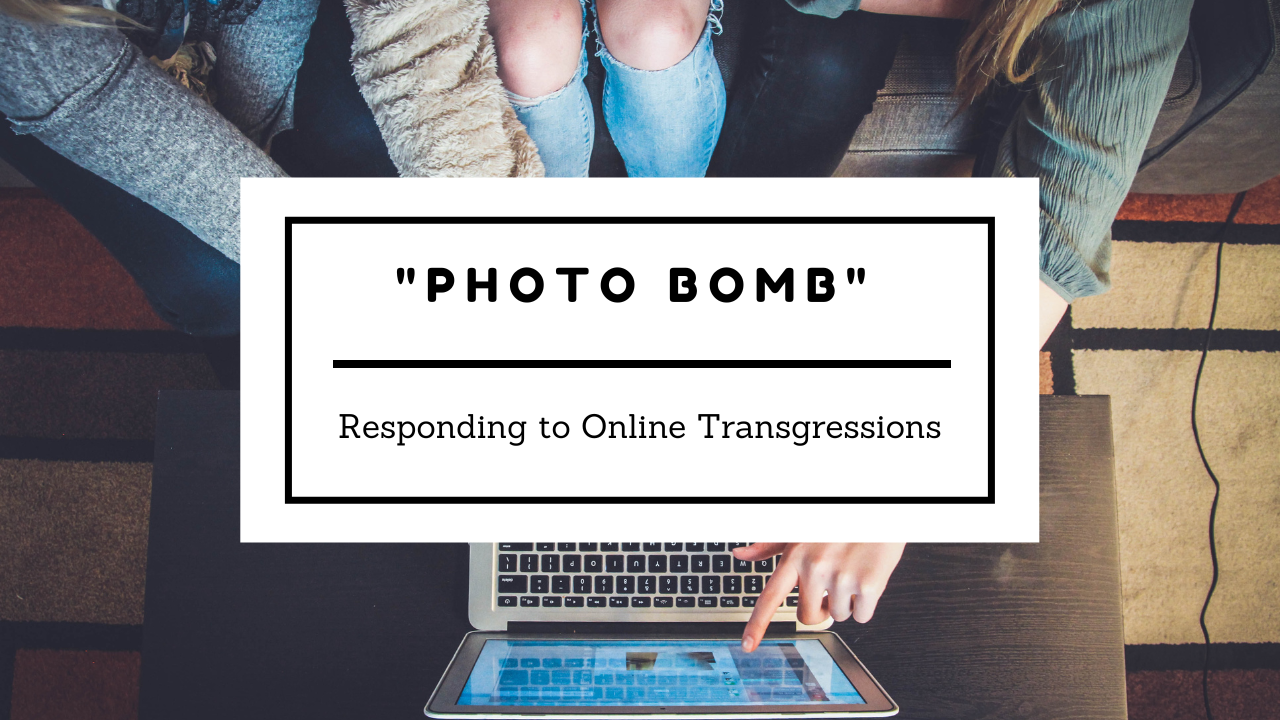 Snapshot: A pair of seventh graders in Madrid take a topless photo of a female classmate using WhatsApp and forward it to the rest of the class. This case asks teachers and families to think about dilemmas that arise when underage students at home misuse technology in ways that might constitute cyberbullying, even though the students don’t understand the potential criminality of their actions. When the entire school community is affected by behavior that happens at home, how should teachers and school leaders respond? What responsibilities and limits does the school have to discipline students for out-of-school behavior?
Snapshot: A pair of seventh graders in Madrid take a topless photo of a female classmate using WhatsApp and forward it to the rest of the class. This case asks teachers and families to think about dilemmas that arise when underage students at home misuse technology in ways that might constitute cyberbullying, even though the students don’t understand the potential criminality of their actions. When the entire school community is affected by behavior that happens at home, how should teachers and school leaders respond? What responsibilities and limits does the school have to discipline students for out-of-school behavior?
Este caso plantea a profesores y familias dilemas educativos que surgen cuando, alumnos menores de edad, y estando en casa, hacen un mal uso de la tecnología que podría considerarse ciberacoso, aunque ellos no sean conscientes del carácter delictivo de su actuación. ¿Cómo deben responder los profesores y los responsables del centro cuando la comunidad educativa se ve afectada por un mal comportamiento de los alumnos en su casa? ¿Hasta qué punto tiene el colegio la responsabilidad y/o la obligación de intervenir y sancionar las infracciones cometidas por los alumnos fuera del ámbito escolar? ¿Qué límites tiene esa intervención?
Para leer este caso en español haga clic aquí.
Case description: Teachers and staff at the Colegio Roma in Madrid meet to determine how to respond to a tough situation. Over the weekend, two seventh graders played a joke on their classmate Clara, pretending to be her popular neighbor and asking her to strip for the webcam, at which point they took a screenshot. They then sent Clara’s photo to classmates who in turn forwarded it to others. The school must now decide which students should be held responsible and what consequences they should face. Clara and her mother want to forget the entire incident ever happened, but is that the best course of action?
The case raises a number of important questions about online citizenship, personal responsibility, school culture, and the boundaries between home and school. How should schools respond to transgressions that take place at home but whose consequences penetrate the school walls? Do public infractions demand public responses? Or is it preferable to dole out private consequences for public infractions in order to protect the privacy of the young people involved, all of whom are minors? How can schools turn cyberbullying and other misbehavior into learning opportunities while still protecting the victim?
Los profesores del colegio Roma se reúnen para decidir cómo actuar ante una situación difícil. El fin de semana, dos alumnos de 1º de ESO gastaron una broma pesada a Clara, una compañera. Se hicieron pasar por un vecino muy popular y le dijeron que se desnudara delante de la webcam, momento en el que hicieron una captura de pantalla. Luego enviaron la foto de Clara al resto de la clase, y estos la reenviaron a otros. El colegio debe decidir ahora qué alumnos tienen responsabilidad en esto y qué consecuencias deben afrontar. Clara y su madre quieren olvidar el incidente cuanto antes, pero ¿es lo mejor?
Este caso plantea cuestiones importantes sobre la ciudadanía en la red, la responsabilidad personal, la cultura del centro escolar y sobre los límites entre el hogar y la escuela. ¿Cómo deben responder los centros escolares a las infracciones que se dan en casa pero cuyas consecuencias afectan al ámbito escolar? ¿Exigen una infracción pública una respuesta o castigo público? ¿O es preferible aplicar sanciones privadas para proteger la intimidad de los implicados, todos ellos menores? ¿Cómo pueden los centros escolares convertir el ciberacoso y otros comportamientos indebidos en oportunidades de aprendizaje, sin dejar de proteger a la víctima?
Additional Resources:
- In this case, school leadership must determine whether the joke against Clara is a case of cyberbullying, a criminal offense. You can read the regulations from the city of Madrid that the committee in the case uses.
- Para ver el protocolo de intervención de la Comunidad de Madrid: https://www.educa2.madrid.org/web/convivencia/protocolo-de-intervencion
- The nonprofit Aldeas Infantiles SOS has resources to help case readers better understand the problem of cyberbullying in Spain.
- Aldeas infantiles SOS: https://www.aldeasinfantiles.es/acoso-escolar
- Bullying at school is a serious problem: a report from the World Health Organization estimates that 200,000 young people between the ages of 14 and 28 commit suicide each year because they have been bullied. This article from a Spanish newspaper discusses that report and tells the stories of young people in Spain who lost their lives because of bullying.
- Programa de radio SER: https://cadenaser.com/programa/2022/01/10/la_ventana/1641837590_846812.html

